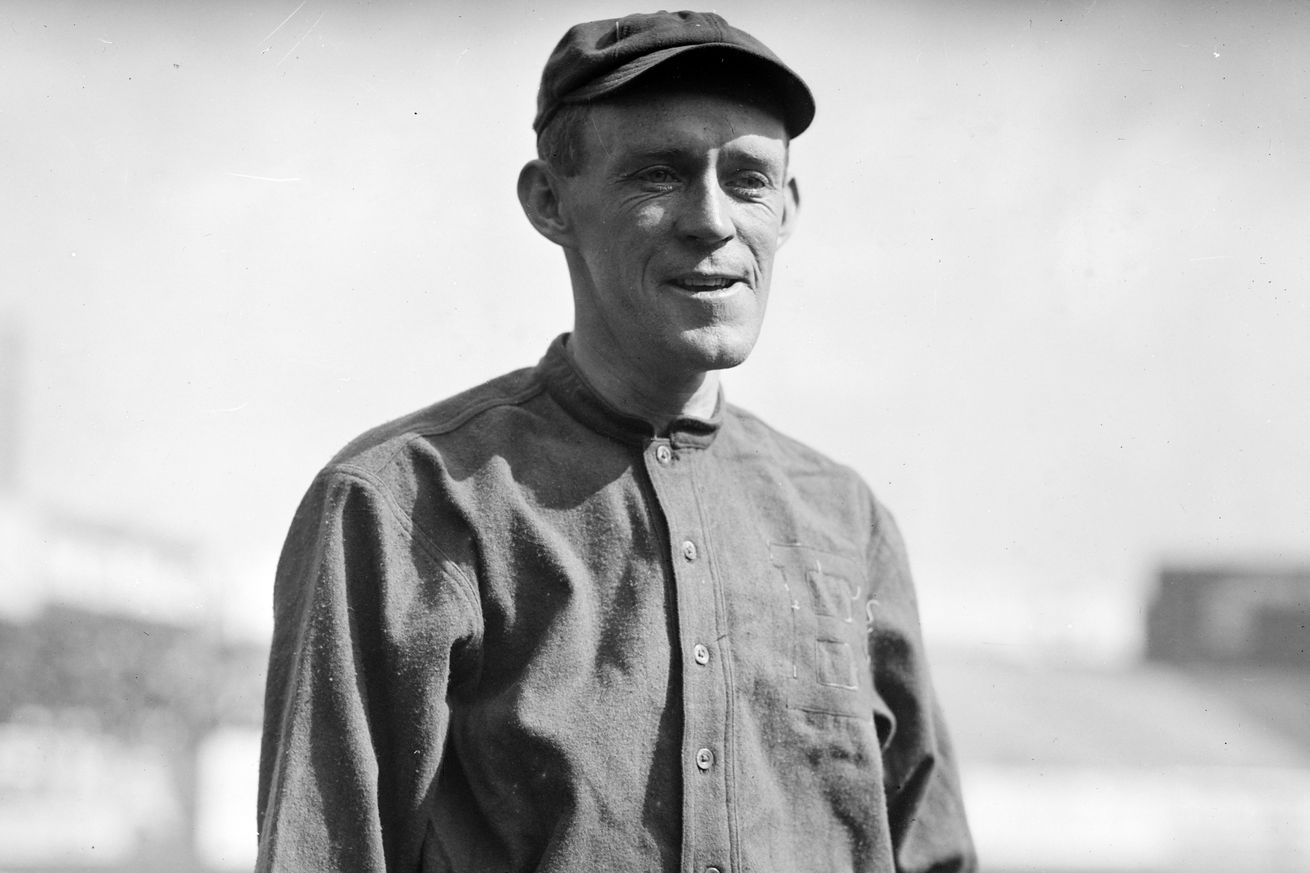
This was the beginning of great change for the Chicago N.L. franchise.
In 1914, the upstart Federal League began, hoping to challenge the existing National and American Leagues for baseball supremacy. It lasted two years, but resulted in lasting change for the Cubs, as when it folded, Federal League Chicago Whales owner Charlie Weeghman was allowed to buy the Cubs as part of the settlement.
In the meantime, the 1914 Cubs were managed by Hank O’Day — yes, THAT Hank O’Day, who was an NL umpire in 1908 and made the fateful decision to call Fred Merkle out for not touching second base on what looked to be a game-winning hit for the Giants. The game wound up a tie and was replayed, with the Cubs winning.
Anyway, the 1914 Cubs got off to a bad start, but from May 31 to July 10 went on a 24-12 run that got them to within 2½ games of first place. Alas, that was as close as they would get, with the Miracle Braves going on an incredible run in the season’s second half. The Cubs finished fourth, 16½ games behind.
Before the 1914 season: Al Bridwell, Ward Miller, Earl Moore and Doc Watson jumped to Federal League teams
“Jumped” was the terminology used in the time to refer to players who simply broke their existing contracts and went to another league. There weren’t the sort of league agreements in existence that we have now, and the NL/AL and FL were definitely competitors, as the NL and the upstart AL had been a decade earlier.
None of these players had been significant contributors to the Cubs the previous year, so I include them here simply as a matter of historical record, and to show how fluid things were in major-league baseball (lower-case, not the “MLB” we know today) at the time.
February 11: Acquired Bill Sweeney and cash from the Braves for Johnny Evers
Evers had not only been a stalwart of four Cubs NL pennant winners and two World Series champions, not to mention a part of the famed Tinker-to-Evers-to-Chance double-play combination, but he had been the team’s manager in 1913, leading them to an 88-65 record and third-place finish. He’d been signed to a five-year contract before 1913, but… that went south quickly, per Evers’ SABR biography:
But the Cubs failed to improve on the previous year’s third-place finish, and after the season Murphy summarily dismissed his manager despite the long-term contract.
The fallout was acrimonious. Murphy initially claimed that Evers had resigned. Johnny angrily disputed that, and the other NL owners unanimously sided with him. Murphy then tried to trade his ex-manager to the Boston Braves for two players and cash. Evers said he wouldn’t report, and his refusal was made more piquant by the fact that the newly-minted Federal League was offering him $30,000 to forsake the NL altogether. Although Evers later claimed that he had no intention of jumping to the new league, that was far from clear at the time. Disgusted by Murphy’s tactics and afraid of losing one of their top stars to the upstart league, the NL owners nullified the trade and awarded Evers his release, permitting him to sell his own contract to the Braves for $25,000 plus bonuses and incentives of various sorts. His overall earnings for 1914 made him the highest-paid player in baseball.
Well. That sort of thing just couldn’t happen today. The figures quoted above are roughly equivalent to almost $1 million today.
Evers was 32 and still a good player. In fact, he was named NL MVP in 1914 and was a key part of that “Miracle Braves” run to the pennant. Sweeney, a second baseman who’d been with the Cubs briefly in 1907 before being traded to the Braves, played only one more year for the Cubs and batted .218/.298/.276.
This was a terrible trade made out of spite, not what was best for the team. Subsequent ownership made up with Evers and he managed the Cubs again for part of 1921.
Incidentally, his name is not pronounced “EH-verz” as I have heard it said many times. In Evers’ time, his family, friends and teammates pronounced it “EE-verz.” (His baseball-reference page has the latter pronunciation.)
July 6: Acquired Casey Hageman from the Cardinals for cash considerations
Hageman, a lefthanded pitcher, threw in only 16 games (one start) for the Cubs, posting a 3.47 ERA and recording negative bWAR (-0.1). Then he left organized baseball:
That winter there was another contract dispute involving Hageman and the Cubs. His 1914 contract with the Cardinals had called for a $240 bonus. In April of 1915 he was awarded the bonus by the National Commission and the Cubs were also instructed to offer a 1915 contract including the bonus. Evidently this contract was not offered, or other terms were unsatisfactory, and Casey Hageman left Organized Baseball.
It was a different time.
July 20: Acquired Claud Derrick from the Reds for Fritz Mollwitz
Mollwitz, a first baseman, would be reacquired by the Cubs a couple of years later after some not-so-great play in Cincinnati.
Derrick, a shortstop, batted .219/.257/.271 in 28 games for the Cubs in 1914, after which he played several more minor-league seasons.
Again, they might as well have not bothered.
Give these deals a “D” for giving away Evers in a fit of pique.
